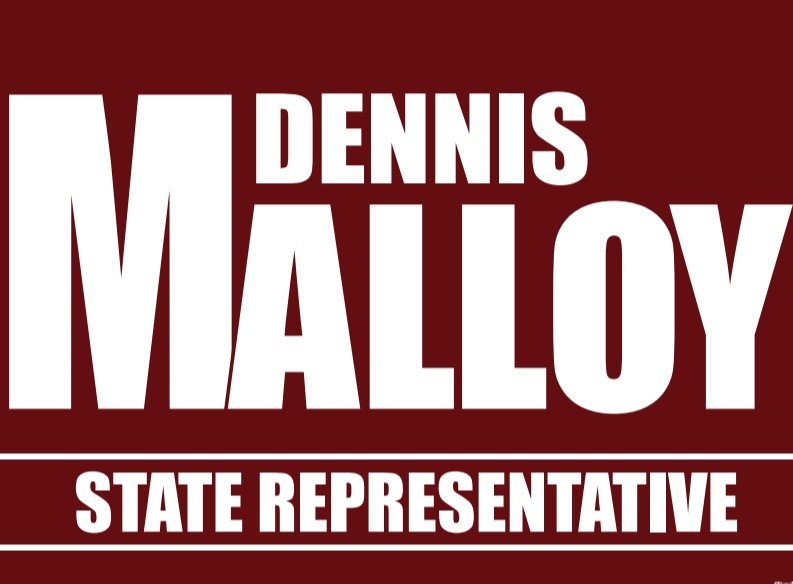The lowering of the NH Business Profits and Business Enterprise taxes have had no material effect on NH’s economy. Businesses would prefer investment in education, health care and affordable housing instead.
Greenland, Rye State Representative Dennis Malloy serves on the Ways and Means Committee that crafts NH’s taxes and revenue policies.
New Hampshire has reduced taxes on corporate profits and eliminated the interest and dividends tax. Twice the legislature has shifted the cost of public employee pension obligations from the State to municipalities. The Motor Fuels Tax (MFT) revenue has not kept up with state road maintenance and the tobacco tax is showing signs of eroding.
By lowering some taxes, eliminating others, abandoning support for public employee pensions, and ignoring business friendly infrastructure needs both business and private property owners will be forced to make up for projected revenue losses with increased property taxes.
A recently released report from the non-partisan, non-profit New Hampshire Fiscal Policy Institute (NHFPI) reports that revenue generated from all New Hampshire sources amounts to more than $2.9 billion annually with more detail about NH’s tax revenue and the pressure it puts on our property taxpayers otherwise known as COST SHIFTING.
New Hampshire’s largest source of tax revenue is the property tax, the second largest source is the business profits tax (BPT), at 52 and 17 percent, respectively. Most businesses do not pay a BPT and after a series of reductions, the new 7.5 percent rate matches the corporate taxes levied by other New England states. Some believe that by lowering this rate from 8.5 percent just a few years ago current businesses will expand, and new ones to form in New Hampshire.
However, the Business and Industry Association (BIA) has repeatedly said that a lower corporate profits tax is not their biggest concern. Instead, New Hampshire should prioritize attracting and retaining workers for existing businesses, and invest in public education, health care and affordable housing. Lowering property taxes, improving transportation infrastructure, and expanding broadband access are just as important. New Hampshire’s corporations are asking us to create a friendlier business climate by investing in our people, our roads and our telecommunications resources. Gradually lowering the BPT has had little to no effect in helping business with their more important needs.
In another tax cutting move, the Interest and Dividends (I&D) tax has been eliminated. Gone is $158 million or 8 percent of NH’s General Fund revenue in tax year 2022. The I&D It is levied on individuals with over $2,400 and couples with $4,800 in annual income from savings and investments and disproportionally benefits wealthy households.
Historically, New Hampshire has supported the retirement system for certain public employees by funding over one-third of this obligation. Following the Great Recession of 2007-2009 the contribution was reduced and eliminated entirely in 2012 forcing local governments to pick up the tab since 2013 except for a smaller one-time aid last year. This year we proposed a 7.5 percent contribution, but it failed to be included in the budget. Since 2010 local property taxpayers have been making up for this loss.
Our MFT is flat at 10 percent of our budget and has not kept up with the soaring costs of road maintenance. Monies from the General Fund have been used to supplement the building, repairing and plowing of our state roads during the past four budget cycles. Currently, drivers of electric or hybrid vehicles either pay little or no MFT. The MFT also helps fund block grants to towns and cities for upkeep of the local transportation infrastructure.
The $232 million dollars collected by the state in tobacco tax is teetering due to shifting demographics and increasing health awareness. This is just over 7 percent of NH’s tax revenue.
There are many in New Hampshire who support the tax cuts, leaving the MFT alone, and letting municipalities be the sole source of support for local public employee pensions.
There has not really been a tax reduction, just COST SHIFTING. These moves will eventually show up on our property tax bills and it will be up to personal and business property taxpayers, to cover the costs.
The reliance on property taxes to pay our bills will only grow. Both businesses and our citizens have clearly stated that enough is enough. Investing in our people, resources and infrastructure is the way to grow the economy, retain our most talented citizens and give us some relief on our property taxes.
For a complete report by the NHFPI go to State Business Tax Rate Reductions Led to Between $496 Million and $729 Million Less for Public Services - New Hampshire Fiscal Policy Institute (nhfpi.org)




